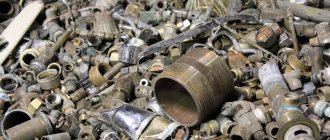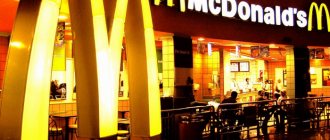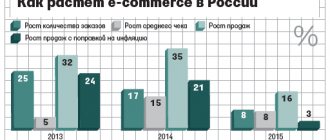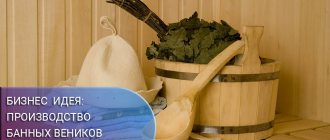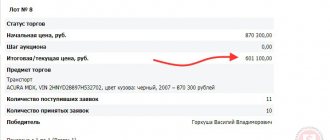What you need to know to open a farm products store
The first thing you need to open a farm products store is to draw up a clear action plan, the first point of which will be the preparation of documentation. You need to collect the entire list of documents for individual entrepreneurship and register with the tax authorities.
Once the business is legalized, you can move on to the second point - finding a location. The intensity of the flow of customers is influenced by the location of the store: the welfare of the area, the proximity of transport interchanges, as well as markets and supermarkets. The ideal location for a store would be a building located in a prosperous, modern neighborhood away from other grocery outlets. Points located on the ground floor of an apartment building have good profits.
As for the size, for your convenience and the comfort of your customers, choose a place with an area of at least 60 square meters. After the choice of location is made, do not forget to take care of obtaining permission from the sanitary, fire and veterinary inspections.
What product should I offer the buyer?
Today, choosing products with the “organic” label, maintaining a toned body and paying attention to your health in general is a measure of quality of life. Many people, keeping up with the times with a confident athletic step, have already preferred cozy farm shops to the huge assortment of the supermarket. Therefore, the prospects for this enterprise are significant.
By the way, the growing demand for environmentally friendly products is not only a Russian trend, but rather a global one. The number of countries with adopted laws on organic farming is approaching a hundred, and Russian legal regulation of this issue is already beginning to be implemented.
Now we’ve come to the most important thing - the store’s product content. If you do not have your own farm, the fruits of which are enough to fill an entire store, it will be easiest to enter into an agreement with local farmers. Thus, you will receive guaranteed high-quality, fresh goods straight from the garden or farmstead, without waiting for a “pig in a poke” abroad. Again, a product purchased from a domestic manufacturer will have a lower cost than a foreign analogue.
Do not forget to be vigilant: before concluding a cooperation agreement, you must ask the farmer to present a certificate of product quality, and check the raw materials and production processes. Your store’s products must monthly confirm their proud title of natural and farm-grown by undergoing laboratory testing.
Exterior of a farm produce store
The appearance of a farm food store is no less important than its contents. Words about environmental friendliness, cleanliness and freshness of products will not sound convincing without maintaining the cleanliness of the premises itself. There should be no foreign odors, as well as products that have lost their presentation.
Display cases should be filled with the most attractive representatives of a particular product category: for example, vegetables with thick skin should be in plain view of buyers. Ripe berries and fruits will retain their quality better in refrigerators; other farm products should also be placed in refrigerated display cases with specially adjusted temperature conditions.
Store pricing policy
Organically pure products are more expensive than their nitrate counterparts from supermarket shelves. But since the market for farm goods in Russia is still young, no one can accurately determine the size of the markup. If abroad the “organic” label adds 20-30% of the cost, then here the markup can reach 100%. We advise you to still adhere to the European pricing policy, especially at the beginning of starting a business.
The main disadvantage of farm products that prevents them from appearing on the shelves of many supermarkets is their short shelf life. In order not to periodically lose large quantities of goods, you should make a discount on not very fresh products, warning customers in advance about the reasons for the markdown.
Farm store staff
If you have a limited budget in the initial stages of starting a farm food store, you can personally stand behind the store counter, removing the seller’s salary from the estimate. In addition, you are really interested in the success of the business, you know everything about the production of the product and can provide all the necessary certificates. In the future, when hiring a salesperson, check his ability to win over the buyer, his knowledge of the product and his general interest in the business.
Farm business plan
Let's look at the main stages of starting a farm.
Registration with government agencies
Peasant farming is a form of individual entrepreneurship; the state duty for its registration in 2020 will cost 800 rubles. To sell your products in markets and other retail outlets, you will need to provide documents such as:
- a certificate from a veterinarian (since animals will be bred on the farm);
- conclusion of the SES;
- certificates for product compliance with quality standards.
Also, in order to sell products to retail outlets, you will need:
- Permits from Rospotrebnadzor.
- Permission from fire inspectors.
It is most profitable to use the Unified Agricultural Tax (USAT) as a taxation system. It is 6% of the difference between income and expenses of a farm.
When registering a company in our example, you must indicate the following types of OKVED:
OKVED 01.41.1— Breeding dairy cattle;
OKVED 01.41.21 - Production of raw cow's milk
Searching for land and preparing it for exploitation
Business begins with searching for a plot of land. To implement the project, the company will need:
- administrative buildings;
- utility buildings.
A farm of our type needs at least 1500 sq. m of land, land prices vary greatly depending on the distance of the land from the city, in our case, 1 sq.m will cost 30 rubles. On this territory it is necessary to place a hangar for keeping cattle, a warehouse for storing feed, a summer pen for animals, as well as an administrative building for employees, which will also house a warehouse for storing feed. Finding a ready-made farm with ready-made structures will be problematic, so prepare for the fact that all the necessary buildings and communications will need to be carried out yourself.
It is advisable that the site be located as close as possible to meadows and pastures (this is the natural food supply for cattle), otherwise the work on stockpiling feed will be very expensive. In addition, there is a need to locate the site near transport routes, because products will have to be transported, and being too far from the road can negatively affect the cost of transportation.
Next, it is necessary to bring communications to the structures (hangar). Electricity, water and gas connections will be required. These procedures can take a long time, so you need to take care of them in advance. This stage can take up to 6 months, the cost of implementation will cost the businessman 100 - 200 thousand rubles.
Purchase of necessary inventory and equipment
To work you will need the following list of equipment:
| Name | Quantity | Price for 1 piece. | total amount |
| Farm equipment | |||
| Milking machine | 15 | 21 000 | 315 000 |
| Loader | 1 | 1 000 000 | 1 000 000 |
| Conveyor for removing manure and debris | 1 | 170 000 | 170 000 |
| Feed mixer | 1 | 80 000 | 80 000 |
| Stationary feeder | 50 | 5 000 | 250 000 |
| Containers and pallets | 40 000 | 40 000 | |
| cooling chamber | 5 | 20 000 | 100 000 |
| Slaughter equipment | 800 000 | 800 000 | |
| Total: | 2 755 000 | ||
| Communication equipment | |||
| Lighting system | 210 000 | 210 000 | |
| Heating system | 180 000 | 180 000 | |
| Ventilation system | 80 000 | 80 000 | |
| Total: | 470 000 | ||
| Staff equipment | |||
| Microwave | 1 | 10 000 | 10 000 |
| Kettle | 1 | 5 000 | 5 000 |
| Form | 5 | 1 500 | 7 500 |
| Computer | 1 | 25 000 | 25 000 |
| Printer | 1 | 5 000 | 5 000 |
| Furniture | 20 000 | 20 000 | |
| Total: | 72 500 | ||
| Total amount: | 3 297 500 | ||
A large amount of work on farms is done with the help of machines, this will save your time and money, so you should take care of purchasing milking machines, a loader and a conveyor.
Purchasing animals
The costs of this item may vary significantly depending on the type of animals you will purchase. A dairy cow (2-3 calvings) will cost at least 60 thousand rubles, a heifer from 3 months will cost 10-15 thousand rubles, but she still needs to be raised, and the receipt of finished products can be delayed for about a year. As part of this project, 30 heads of dairy cows, 20 bulls and 20 heads of young animals will be purchased. Thus, the cost of purchasing animals is at the level of 3,200,000 rubles.
Personnel search
If there are not enough peasant farm members, you will have to hire employees. You will need:
- Vet.
- Slaughterer;
- Support workers;
- Accountant.
Concluding contracts with buyers
The sale of finished products is an important stage of farming, on which all profits depend. The most favorable development of the event will be the conclusion of an agreement for the supply of products for a chain of stores. Depending on the chosen niche and form of production (individual entrepreneur or LLC), it is possible to use various wholesale and retail sales channels.
Project launch schedule
| Stage/duration of execution, weeks. | 1 | 2 | 3 | 4 | 5 | 6 | 7 | 8 | 9 | 10 | 11 | 12 |
| Registration of peasant farms | ||||||||||||
| Search for land | ||||||||||||
| Preparing the site for operation | ||||||||||||
| Purchase of inventory and equipment | ||||||||||||
| Purchasing animals | ||||||||||||
| Search and hiring of employees | ||||||||||||
| Concluding agreements with suppliers |
How to name a grocery store and how to attract customers
Advertising, as you know, is the engine of progress, as well as profit charts. Therefore, the marketing strategy must be clearly worked out in advance, taking into account all the costs of “promotion”. Since we are talking about maintaining health and improving the quality of life, PR should be exclusively positive.
How to promote a store? Fresh goods, favorable pricing and friendly staff are the basic principles on which your advertising should be based. It is necessary to ensure that as many customers as possible, who look into a new retail outlet out of curiosity, become its regular visitors.
Another significant point in advertising is the choice of name. What do you call a grocery store? The name should be related to the line of business, easy to pronounce and memorable.
What products are called natural
Natural or environmentally friendly products are considered to be those that do not contain preservatives, dyes, artificial flavors and taste enhancers. These are products grown or produced without the use of synthetic fertilizers, pesticides and GMOs.
More and more people are beginning to understand simple truths: a person’s health directly depends on what he eats. Ecologically clean and natural products are not only healthy, but also very tasty. Anyone who has ever tried real, country milk or sour cream prepared in a natural way will never confuse these products with those bought in the supermarket. Having the opportunity to use higher quality products, any reasonable person would prefer them to those that contain drugs that destroy his body.
Costs of opening a farm store
To accurately calculate the required investments in the initial stages of starting a business, you should answer questions on several points:
- Do you have commercial space or will you have to rent it?
- Are you purchasing new or used commercial equipment?
- Do you enter into a contract for the supply of products with a farmer, or do you have your own farm?
As a rule, an amount of 500-700 thousand rubles will be enough for you to open a store.
Retailer advantages
For a retailer, this type of interaction is also very interesting. Chains have the opportunity to attract new customers, because today the population’s demand for farm products is quite high. The store indirectly gets the opportunity to expand its product line. In addition, local products are traditionally popular due to the high trust of residents in the quality of the goods. Chairman of the Committee for the Support and Development of Small and Medium Enterprises of the Chamber of Commerce and Industry of the Russian Federation Igor Sklyar agrees with this :
— For a retailer, such cooperation is definitely beneficial. The chains understand that the farmers in their store are not their competitors, but once again there is a so-called “anchoring” of customers who will come in and buy something from the farmer. For a large retailer, this is only a plus: additional money from the entrepreneur.
Article on the topic
“It’s better not to take a fashionable soufflé.” Farmer on how to choose quality honey
Examples of successful projects or how to promote a grocery store
Today, opening a farm supply store is quite common, so you should prepare for intense competition. Especially if you are going to start a business in Moscow or St. Petersburg. To better understand the specifics of this business, work on mistakes and simply be inspired by someone else’s successful example, let’s consider the organization of the business of two popular projects.
The VkusVill store is approaching its tenth anniversary, which means it was lucky to stand at the origins of selling farm products.
“VkusVills” is a fairly large project by the standards of this business, the stores of which have an average area of 60-120 square meters, the assortment of which includes the entire wealth of organic products. Vegetables, fruits, meat, fish, cheeses, sweets - here you can fully fill your grocery basket, crossing off all the items from your shopping list. The store sells goods, up to 95% of which are the fruits of the labor of small farms. The success of the store consists of:
- Strict quality control: regular laboratory tests, customer surveys. Up to 70% of the store’s goods are perishable.
- Fairly low markup.
- Cooperation with several proven manufacturers.
- Sales of goods under your own brand.
- The idea of the project is to take care of the customer first.
One of the most popular brands of organic products in Russia is the LavkaLavka project. The launch of the project also occurred in 2009, when farming in Russia had not yet stepped beyond the boundaries of agriculture. Today LavkaLavka is not just a chain of shops, it is an entire association, under the name of which offline and online stores, a restaurant, a natural farming market, a farming community and even a newspaper have opened their doors!
The project is very demanding of its suppliers, who are members of their own farming cooperative, certified according to the internal standard. LavkaLavka is a community of people passionate about farming, and the high prices of the chain’s stores are due to investments in the development of organic farming.
How to sell farm products with a 45% markup. History of "Kalina-Malina"
The Kalina-Malina chain of stores was launched by the team of A.P. Volkov’s Peasant Farm - a famous Kuzbass producer of sausages and meat delicacies. In two years, the project has grown into a major network player, managing fifty stores throughout Siberia (90% in Kemerovo), and gathered around itself a cooperative of farmers, some of whom literally restarted production for the sake of Kalina-Malina. At first, the traditional farm set - fresh milk and home-made eggs - was located in Volkov brand stores, where a department was set up for the products of peasant farms. Having made sure that the project was profitable, the founders of Kalina-Malina moved the outlets to other sites and began to develop the franchise. In an interview with Five o`clock, the head and co-owner of the project, Artyom Volkov, told how he selected the best farmers, what is the most difficult thing in partnership with rural business, does the Kalina-Malina cafe make a profit, and why online sales of fresh food remain “meager.” The Smart Money publication publishes this interview on its pages.
Artyom Volkov
Artem Volkov Co-owner of the Kalina-Malina chain KemTIPP (technologist of meat and meat products), 30 years old
— “Kalina-Malina” launched against the backdrop of food sanctions coming into force, and you must have been counting on the notorious import substitution. Not in vain?
— Yes, there was such a trend, but we did not follow it, did not catch the “recommendations” from above. There was an understanding that we were ripe for such retail. The idea arose even before the crisis, sanctions and bans. We can say that we have started optimizing the sales of Volkova meat products. We tried to make departments and find a place for a farming niche. And in general, how much import is sold in the farm products segment? Have you seen a lot of foreign eggs, milk, and cottage cheese on the shelves? This is 0.0001% of the entire market. These are products that cannot be made in Russia under any circumstances, things that do not grow or take root here. So they left the market. I cannot say that we replaced them.
— Why did you decide that Kuzbass is ready for farm products? Did you have any analytics of customer demand?
- Well, analytics is a crafty thing. If you order it from someone, they will show you the numbers, but where are the guarantees that these people are not making mistakes? There was confidence at the level of intuition and a little experience: before launching Kalina-Malina with a wide range, we tried to sell the milk of one farmer whom we personally knew and respected. It was an experiment: the product was more expensive than the market average, but it was of better quality and fresher - will they take it? The buyer voted with rubles. As a result, [Volkov’s] average bill increased and sales went up. Everything pointed to the need to continue and launch a separate direction. This is how “Kalina-Malina” appeared.
- How long did it take?
- Six months. First they added sour cream and cottage cheese to the milk, then an egg. We started looking for other farmers. At the same time, we agreed with LavkaLavka about a seminar, began to develop a design, prepare areas in stores, shelves, and refrigerators. In principle, at the first point everything was already ready for sales; no large investments were needed. We simply stylized one department as “eco”: we made everything from wood, even the floor. Naturally, if this were a separate someone else’s premises, another store, everything would cost many times more. We met 600,000 rubles (trade equipment, design, marketing, advertising) and within six months we opened 4-5 more similar departments.
— How did you find suitable farmers? What were the selection criteria?
— This is the value of our work, our main competitive advantage is finding the best. We went from the opposite: in supermarkets, all the products are from resellers and wholesalers, which means that we will only have from small farmers. There are intermediaries in the networks - we will work directly with the farmer. There are preservatives, dyes, GMOs everywhere - we are for a natural product. All have a long shelf life - ours is exactly as long as the product “lives” in natural conditions; usually this is a “perishable” item. Another important point: we work only with Siberian products, we do not transport anything from other regions. Plus a subjective factor: we must like the farmer, otherwise we won’t work together. After such a selection, we go “for an audit.” Our scouts regularly evaluate the level of production on site: hygiene, dishes, equipment, temperature, documentation. This is such a hassle! We wait for some people for six months until they correct all the shortcomings or prepare the documents. This is followed by laboratory testing. This is also important: a farmer can do everything perfectly once, and then start messing around, adding something, adding chemicals.
| 45% average markup | ≈ 85,000 customers per month | 350 rubles - average bill in a store |
— Don’t all farmers work directly, don’t use preservatives and have documents?
- No, absolutely. To receive documents, at least a veterinary certificate, you need to at least register your private household plot. This is if you have one cow or a garden bed, and you sell only at the market. If you decide to get confused with the sales market, go online, then you need to register an individual entrepreneur, LLC or peasant farm and pay taxes. Why, when you can just go to the market or sell to buyers? That's what the majority do. It is very difficult to persuade people to change their form of ownership, switch to individual entrepreneurs and taxes. But there is no other way - they won’t let you into the store. When we convince, it turns out cool. For example, they hired a tea farmer. He had great tea, but without documents, without anything at all. We got hooked on him, let’s try to persuade him to formalize everything, but he hesitates: oh well, why, but I don’t know where everything goes. It really wasn’t all that simple: either it was a medical drug (it contained oregano), or something else. We spent a long time figuring out how to register it, we were sent to all authorities. It turned out that the medical industry in Russia is structured in such a way that all these certificates and permits cost millions. We tried to register these herbs not as pharmaceuticals, but as a food product. The whole theme cost 31,000 rubles. The farmer says: “No, it’s also expensive.” I offered to chip in half. They bought everything, he made the product, and it was dismantled in an instant. Two years passed, the declaration expired, so he already re-registered everything with his own money, made a new batch and thanked us ten times for persuading him then.
Sometimes farmers don’t have money for procurement or packaging. Let’s say you need 200-300 cans at once, but there’s nothing to take them with. We buy cans, give them away and buy the finished product. Sometimes we make an advance payment. It all depends on how hard it is for the farmer and the state of his farm.
— How many farmers are in your database now?
- I think less than a hundred. (Pause). Here I have the latest figures for Krasnoyarsk: we found 200 farmers, called them, 58 remained, and started working with one. Do you understand how much variation there can be? We filter the initial list very strongly, only 10-15% remain.
— How often do you stop cooperating with a farmer? Because of which?
- These are one-time cases. I remember there was one Lithuanian who sold sweets. And his prices were simply sky-high, something like 350 rubles for a box of cookies. Why? Well, they say, it’s something special, originally Lithuanian - you can’t find anything like it anywhere except in Lithuania. And we immediately decided that we would not drive down farmers’ prices: how much they set, we would start with these numbers. The cookies sat there for two months and no one bought them. We stopped making orders, and six months later he put the business up for sale. Most often, farmers are not ready for quality requirements and comments. Some listen, and some directly say: “Guys, we have customers even without you, but you’re really annoying with your claims.” This is difficult to deal with.
The real hell is convincing hardened seasoned farmers to make their product better or try to produce something again. If things didn’t go well for them five years ago, you can’t swing them in that direction.
— What is your current geography of purchases and sales?
90% of retail is in Kemerovo. Purchases - Altai, Kuzbass, Krasnoyarsk, Novosibirsk, Tomsk. In principle, we are supporters of a different approach: we need to develop not the Kuzbass product in Krasnoyarsk, but find cool farmers in Krasnoyarsk and sell them to Krasnoyarsk residents. Then there will be no problems with logistics, there will be no need to travel back and forth.
— Are there such problems now?
— Only if you need to go to very remote areas. It’s easier for us in this regard; here too we have joined our meat business, which has an even wider geography: part of the production is in Altai, part in Novokuznetsk, part in Kemerovo. This makes it more convenient to build logistics and go to places that are expensive and unprofitable for others.
9% logistics costs in trade margins
— What are your purchase volumes?
- Differently. I can say that we sell up to 20 tons of milk per month, and we buy products for about 20 million rubles. All this money goes directly to farmers.
-What sells best? Any hits in farm food?
— These are all farm classics: milk, sour cream, cottage cheese, yoghurts. In general, milk accounts for 70% of our sales. The simplest traditional products always sell well. Also jam from cones: in a good season we sell up to 1000 jars.
farming business
- What is your bread and coal? Advertising?
- Oh, this is our superfood. We couldn't get around this topic. Kuzbass is famous for its coal, so black bread with coal is like the very local cuisine (laughs). True, we didn’t invent it, it was there before us. In the same LavkaLavka, by the way.
— You are trying to develop agritourism. There are already some results
— We started doing it only this season. This is a strange format. I don’t even like the name: what is “agritourism”? About everything and nothing. We simply developed a program for visiting farmers, but this is not so much tourism as a quest “become a farmer for one day.” So that a person gets up with the first roosters, goes to the chicken coop for eggs, makes himself breakfast, milks the cow at lunch, chops wood in the evening, floods the bathhouse, and goes fishing early in the morning.
It turns out to be a day of active rural recreation - or work, depending on how you look at it - with elements of farming, fishing, and beekeeping. We let you live a simple rural life, switch gears and relax. There are few results so far; we have been weakly promoting this thing. The problem is different: people don’t want to travel far from home. We cannot organize delivery; it is not always convenient for clients to travel on their own. There are two options: either look for closer bases, or outsource the delivery to farmers.
- Will they agree to this?
- I doubt. In general, they are interested in this story. Some, I know, have already begun to build guest houses, somehow equip the farm, remodel it taking into account the leisure of tourists. They understand what their benefit is. They receive advertising for the place, the product, and themselves as a manufacturer. After all, what do they have to lose? You went and fed their goats, chopped some firewood and paid some more money, that’s great (laughs). Seriously, while this is also an experiment, there is no profit.
Kalina raspberry business franchise
— Does the farm cafe bring you anything?
— For now, this is more of a promo for Kalina-Malina. The cafe was opened almost by accident. We had a store, we were launching a farm department with a very high ceiling, and the design guys suggested a cafe: “Why would you lose height? Let us set up a cafe for you on the second floor, you will still pay the same amount for rent.” In general, we fell for this adventure. And somehow everything happened so quickly, I don’t even really remember that we were soaring somehow. Everything was quickly drawn and done. It’s too early to talk about profit, but there are already good reviews, people like it. I don’t know, maybe we’ll move, maybe we’ll open a second one, but it definitely won’t be a chain, we won’t go further to the regions with the cafe project.
2 553 ruble costs 1 kg of mallard duck meat
— Where will you open new stores?
— We’ll definitely open it in Krasnoyarsk. We recently came to Tomsk, there are five stores there. In Novosibirsk - six, in Novokuznetsk - three, in Barnaul - one. But these are all franchise projects; we do not have our own branches. I don't believe in remote control.
— Were there any problems with franchisee partners?
— In Barnaul, one Volkov franchise was taken away. We always ask you to agree with us on the list of products in the store to understand how well they fit our criteria. The guys [in Barnaul] neglected this and started importing shampoos and household chemicals. At the next audit, we said that this wouldn’t work; Volkov couldn’t have such a line in principle. They say: “Then we won’t survive.” I replied: “On the contrary, your sales will fall! The buyer will not understand how this is possible.” They continued to sell shampoo, and we revoked the franchise. They didn’t argue, they simply transferred them to a supply contract. They also bought sausage as wholesale customers and resold it, but without our brand, without a sign. In the end they closed.
— Do you sell separate franchises: “Volkov” and “Kalina-Malina”?
- No, only Volkova for now. Two weeks ago they tried to join Kalina-Malina in one city. Perhaps someday we will sell Kalina-Malina separately, we’ll have to try it. A store of purely farm food, without our meat products - for now, in my opinion, this is a risk. With Volkov it is more reliable, there are payback figures, everything is clear: investments from 3.5 to 5 million rubles (equipment, repairs, first purchase of products), return in about a year, give or take a season. To add Kalina-Malina to it costs, as I said, 650,000 rubles.
687 items in the assortment
—Who do you consider your competitor?
— There are no more farmer cooperatives with their own retail network in the region. There are online stores, but, as far as I can tell, their sales are much lower than ours.
— Are you familiar with the Little Cow project? You have a very similar product line.
- I know you. There are several online farming platforms in Kemerovo. For example, "DereZA". They promote themselves very actively on the Internet, they have advertising everywhere. But, you see, these are all Internet projects, they are initially small. How do they work? They collect a pool of orders during the week and go out to buy products on the weekends. We transport every day because we have different volumes and different capabilities. I don’t know their sales figures, but it’s unlikely that there’s anything exorbitant there. Our sales are also ridiculous compared to regular retail, so it’s too early to talk about competition. On the other hand, they are great - online stores are the future, in ten years all sales will be there. In addition to the natural evolutionary transition, price will play a role.
The biggest cost in retail is rent, but in online sales they can be significantly reduced
— In ten years, in cities where you have five stores, there will be 25 of them, which means that the need for online sales will disappear by itself. Isn't it easier to come to you after work than to place an order?
- This is true. I think this is the reason for our low online sales. Surely, if there were fewer stores, the numbers online would be higher, but we are unlikely to close them because of this.
